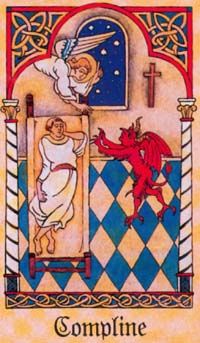

Compline is the Church’s second evening prayer. As opposed to Vespers, it is a subjective and individual prayer for the sinful soul who wants to make her peace with God. Particularly handsome is the symbolism of Compline. The hour begins uniquely without introduction, and abruptly halts for an examination of conscience.
Light and sun are favorite Scriptural and liturgical symbols of God, Christ, and the divine life. On the other hand, night and darkness are frequent liturgical symbols for the powers of hell. It is this night theme that sets the tone for all of Compline. In darkness we recognize the element of the devil; night is the cloak for the prince of this world. The child of God, being a creature oflight, is afraid of this night. Like a tiny chick, he huddles beneath his mother’s wings. There he is safe from the attacks of the hawk, Satan.
It is important to notice that our liturgical prayer thinks not only of ourselves, but of all our fellow men: for them too it is evening now, an evening of temptation, sin, death. It is a matter of experience for all of us that the devil particularly likes to use the hours of night for setting the snares of his temptations. It is almost as if hell were depopulated every evening and hosts of evil spirits came as agents of sin to plague the earth. How many sins does not night cover with her thick black veil! The religious soul prays this night prayer for his own protection from the powers of darkness and for all souls, everywhere.
Sleep, too, is a symbol, an image of death. Spontaneously we think of death when we go to sleep – Compline is also a night prayer to life, a plea for a happy death. It is precisely in this setting that it contains some splendid thoughts. The short and meaningful blessing at the beginning of Compline expresses the double application of the night prayer very concisely: “May the almighty Lord grant us a peaceful night and a perfect end.” Background from the story of salvation is the agony of Jesus in Gethsemane; we pray Compline for the Gethsemane hours in our life.
Thus, the hour expresses earnest petition; contrition, plea for protection, and deepest confidence are its main elements. Particularly beautiful is the invariable part which immediately follows the psalms. First there is a night-prayer hymn, then the consoling chapter, “You are in our midst….” Jesus is in our midst, it is in His name that we are gathered. “Do not forsake us.” That is the main theme, the chief petition- it is repeated and amplified in the responsory that follows.
Two images of death come next; the first, Jesus hanging on the Cross and uttering His last words. “Father, into Your hands I commend My spirit.” We pray the very same words, repeatedly, from our heart: Father, Redeemer, into Your hands I now commend my soul for this nighttime of the day, of my life, of my soul. The following versicle stresses two particularly apt images for nighttime.
a) Guard us like the pupil of Your eye. We need protection just as much as the delicate organism of the eye, and we hope to be as dear to God as His own eye.
b) Shelter me in the shadow of Your wings. Like little chicks running for shelter to the mother hen.
Another reference to death occurs in the canticle from the Gospel, old Simeon’s swan song. He holds the child Jesus in his hands; his dearest longing has just been fulfilled: he has seen the Redeemer and now he begs to be dismissed from his lifelong service to God. We are in a similar position. “We bear the mystical Savior in our hands and in our hearts, the saving graces of the day.” Our eyes have seen “his salvation,” the divine “light” has risen for us, Christ is our “glory.” Now we, too, can pray to be dismissed from service; it is the night of rest that follows the day’s work. We are God’s hired laborers and we must be ready every day to be dismissed by Him. These two themes of death are magnificently done.
The antiphon to Simeon’s canticle is also very rich. Bodily and spiritual waking and sleeping intermingle: Protect us, Lord, while we are awake and safeguard us while we sleep (at night), that we may keep watch with Christ (in life, through grace) and rest in peace (by a happy death).
Again and again, we cannot help noticing that Compline is a night prayer and a prayer for a happy death.
The Compline oration sums up all the day’s prayer themes into one goncise and full petition. It contains four points:
- God is invited to dwell with us by the presence of His grace and His protection. Just as the God of the Covenant once dwelt with His people in the middle of the desert, that is how we want God to visit us and live with us.
- God is also the guardian of the citadel of our soul-He must be begged to keep its portals closed against enemies.
- The angels, too, our guardian angels, are invited to dwell in this house. And suddenly the dream of Jacob comes to mind again, the ladder to heaven and the angels going up and down upon it, carrying prayers and good works to heaven, bringing grace and comfort down to us.
- May God’s paternal blessing be upon us all throughout the night.
Then our night prayer dies slowly away. A few versicles, the blessing of the heavenly Father in the blessing of the father-the priest-our religious family. Following upon this, we offer a parting adieu to our heavenly mother, the Blessed Virgin Mary, one of the Marian antiphons fit for the particular liturgical season. Then, no further sound. The “great silence” has begun.
This introductory text to comes from the Angelus Press “Compline” booklet available from the Virgo Sacrata shop.

-
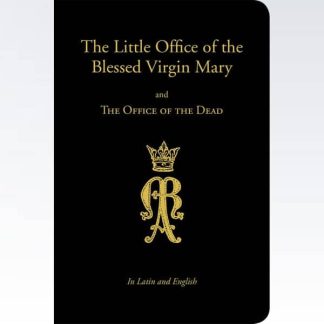 Little Office of the Blessed Virgin Mary and the Office of the DeadUS$ 25.00
Little Office of the Blessed Virgin Mary and the Office of the DeadUS$ 25.00 -
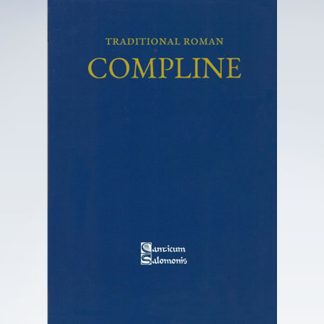 Traditional Roman ComplineUS$ 15.00
Traditional Roman ComplineUS$ 15.00 -
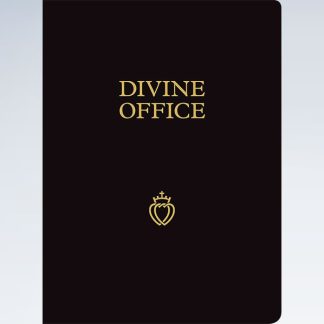 Divine Office (In Latin and English)US$ 49.00
Divine Office (In Latin and English)US$ 49.00 -
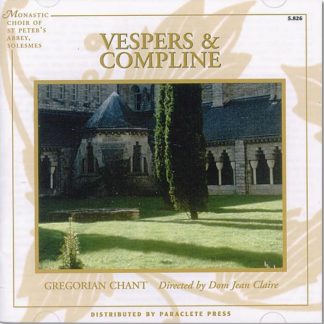 Vespers and Compline (in Gregorian chant)US$ 22.00
Vespers and Compline (in Gregorian chant)US$ 22.00 -
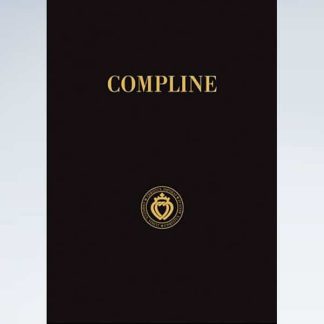 Compline (In Latin and English)US$ 12.00
Compline (In Latin and English)US$ 12.00 -
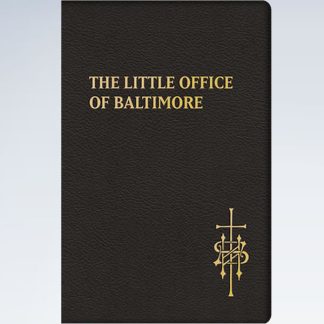 The Little Office of Baltimore: A Traditional Office for American LaityUS$ 34.00
The Little Office of Baltimore: A Traditional Office for American LaityUS$ 34.00
VIRGÓ SACRÁTA is a Christian mission-driven online resource and shop inspired from the beauty of Catholic faith, tradition, and arts. Our mission is to “Restore All Things to Christ!”, in continuing the legacy of Pope St. Pius X under the patronage of the Blessed Virgin Mary. “Who is she that cometh forth as the morning rising, fair as the moon, bright as the sun, terrible as an army set in battle array?” O Mary, conceived without sin, pray for us who have recourse to Thee.


